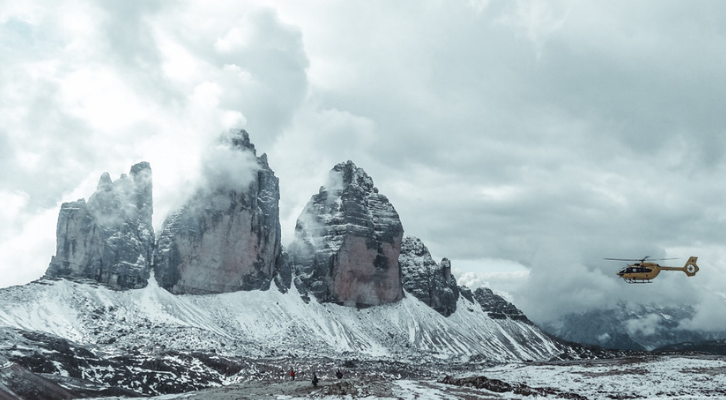Part 1: Improving Resilience, provided tips tips on how to improve your resilience.
Although there are ways that you can improve your resilience through day to day activities, you can also improve your resilience through activities such as travel and sport.
Would you like to know how adventure makes you resilient? Then read on…

– Problem Solving –
When you are travelling or climbing a mountain, there are two options when a crisis emerges: you develop tunnel vision or you find a solution.
Resilient people are able to find a solution that will provide a positive or safe outcome.
Ok, so I wouldn’t suggest climbing mount Everest at first, but even short walks can help to develop problem solving skills. For example, a walk around a local fell has had a land slide and you wanted to take that path back to the car. You now need to think about options:
- How much time do you have before the sun sets?
- Can you navigate in the dark?
- Is it ok to turn around and walk back?
- Crossing a landslide is usually not advisable!
- Is someone with you?
- Are there any alternative routes?
Usually, the more advanced or longer your route or expedition, the more things that can go wrong. So by starting small, you are able to develop problem solving skills step by step.

– Social Connections –
As mentioned in Resilient You Part 1, it is good to discuss challenges with a support network.
When travelling or on a mountain, usually you will have someone else with you. When a challenge arises, it is normal to discuss this with your team mates. You are automatically put into this situation where you have to discuss challenges, which in turn enhances your social connections. And social connections are a crucial part of team work and resilience.

– Responsibility & Sense of Control –
Do you think you have control over yourself and your life? Or do you blame others for your problems?
In general, resilient people believe they have the power to make choices that affect their situations. Consequently, this affects their ability to cope and their future. Sure, there are some situations out of our control like natural disasters and delayed planes and trains. However generally, resilient people believe they can affect their outcome via their actions.
With adventure, if you organise a trip yourself, you do the research, you make the decisions. You take responsibility for any challenges that may bring (other than challenges out of your control).
When climbing a mountain, you make the choice to ascend. It is mainly your choice whether you reach the summit and you will reap the rewards and natural highs after your expedition. Of course, there are elements out of your control such as weather and altitude sickness, but generally it is your choice, your responsibility and your actions will affect the outcomes and your future.

– Knowing When to Ask for Help –
Resilient people usually know when to ask for help during a challenge.
When you travel or are mountaineering, it is usual to ask for help in normal situations. For example:
- In the airport you might need help with checking where to go or checking in a bag.
- Mountaineering, you might need someone to belay you or take some weight for you at higher altitudes while you regain some strength.
These might seem like mundane examples, but they are all small examples that normalise asking for help. Consequently during a large challenge or crisis, you are more aware when to ask for help.

– Adapt to Change –
When dealing with a crisis or a challenge, resilient people are able to quickly adapt to change to bounce back.
This could be something like the weather suddenly changed and now you can’t reach the peak, a team member is ill, you twist your ankle, there is an earthquake or your flight got cancelled.
During an adventure, things don’t always go to plan, so you are quickly forced to adapt to quickly change. Consequently, this enables you to adapt during other challenges in life.
One adventure for sure that enhanced my resilience was chasing the northern lights.
What activities have helped you to practice resilience?
Sarah 🙂
